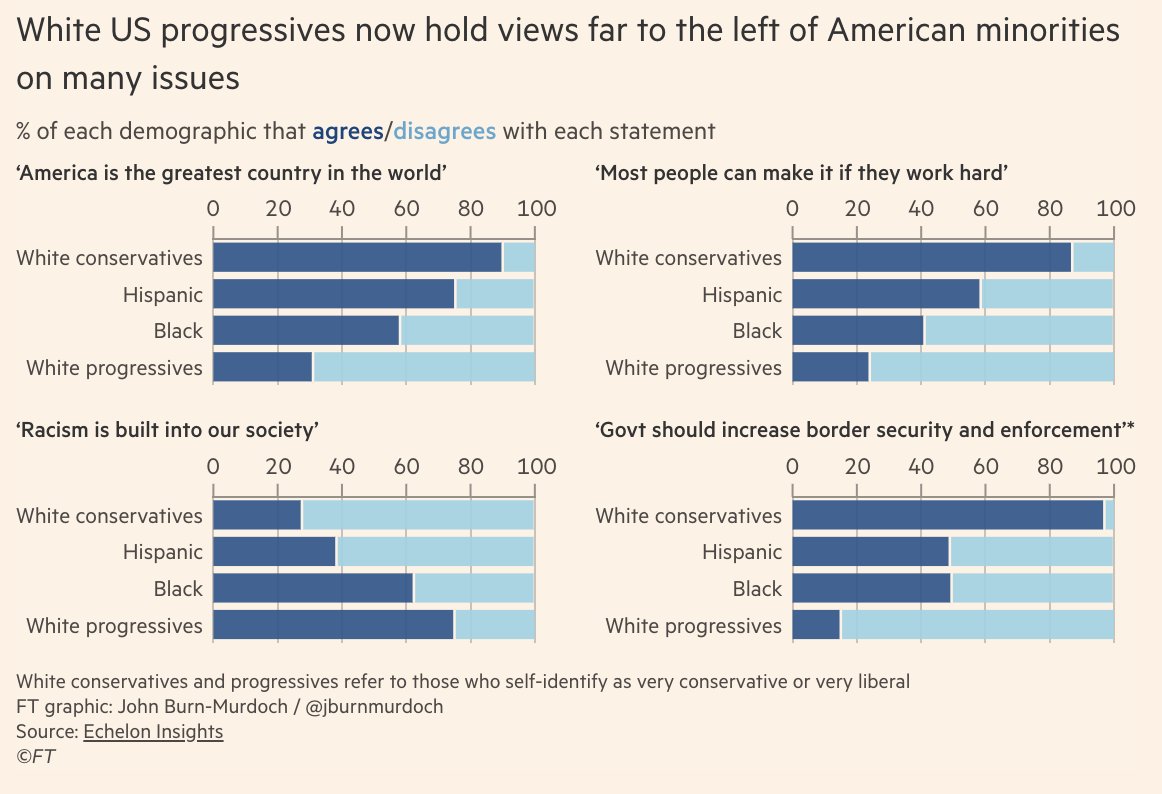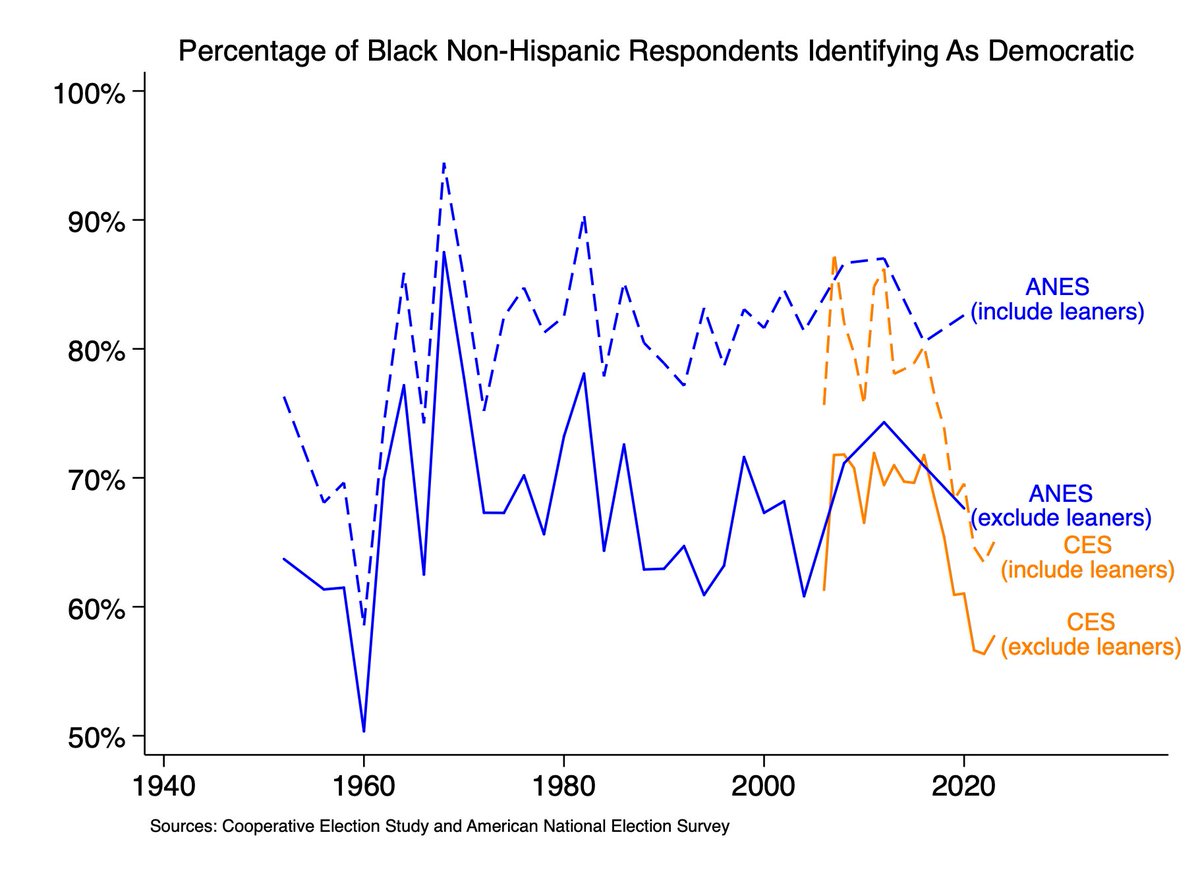
Professor of political science at Vanderbilt University. Publisher of @goodauth. Co-author of THE BITTER END (https://t.co/S984rgq1Yq?…).
2 subscribers
How to get URL link on X (Twitter) App



 2) It exaggerates how much voters vote based on policy. So much polisci shows how difficult that is, and how in fact it's often the reverse: voters choose polices based on whatever their preferred candidate is advocating.
2) It exaggerates how much voters vote based on policy. So much polisci shows how difficult that is, and how in fact it's often the reverse: voters choose polices based on whatever their preferred candidate is advocating.

 The comparison of race+politics groups (white Ds or white progressives) to only racial groups (Hispanic, Black) is the issue here.
The comparison of race+politics groups (white Ds or white progressives) to only racial groups (Hispanic, Black) is the issue here. 

https://twitter.com/jburnmurdoch/status/1767198799934427371Here's the graph. First, the "gold standard" ANES shows no secular decline in black partisanship. All of the decline is in the CES.

https://twitter.com/mattyglesias/status/15095120125895884832) The popularity of positions associated with a political party (fairly or not) affect the popularity of all of a party's officeholders.







 It reminded me of a related experiment we described in Identity Crisis. Clinton voters and Trump voters don't differ much on whether "average Americans" have gotten less than they deserve.
It reminded me of a related experiment we described in Identity Crisis. Clinton voters and Trump voters don't differ much on whether "average Americans" have gotten less than they deserve. 










